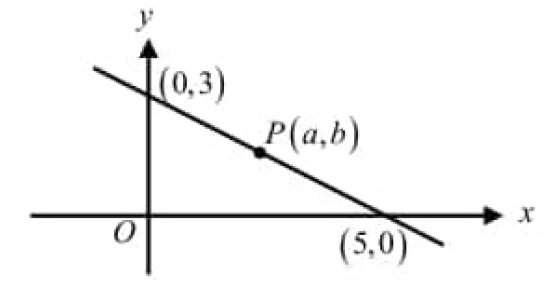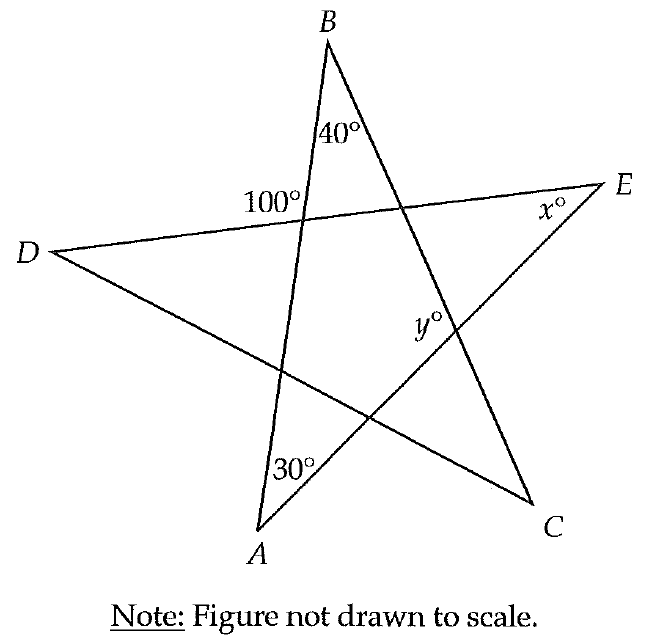NATURE OF ROOTS OF QUADRATIC EQUATION DISCRIMINANT EXAMPLES
The roots of the quadratic equation ax2 + bx + c = 0, a ≠ 0 are found using the formula x = [-b ± √(b2 - 4ac)]/2a
Here, b2 - 4ac called as the discriminant (which is denoted by D ) of the quadratic equation, decides the nature of roots as follows
|
Value of discriminant Δ = b2 - 4ac Δ > 0 Δ = 0 Δ < 0 |
Nature of roots Real and unequal roots Real and equal roots No real roots |
Example 1 :
Find the nature of the roots of the following quadratic equations. If the real roots exist, find them :
(i) 2 x² - 3 x + 5 = 0
Discriminant = b² - 4 a c
a = 2 b = -3 and c = 5
= (-3)² - 4 (2) (5)
= 9 - 40
= - 31 < 0
It has no real roots.
(ii) 3 x² - 4 √3 x + 4 = 0
Solution :
Discriminant = b² - 4 a c
a = 3 b = - 4 √3 and c = 4
= (- 4 √3)² - 4 (3) (4)
= 16 (3) - 48
= 48 - 48
= 0
It has equal real roots.
3x² - 2√3 x - 2 √3 x + 4 = 0
3x (√3 x - 2) + 2 (√3 x - 2) = 0
(3 x + 2) (√3 x - 2) = 0
3 x + 2 = 0 √3 x - 2 = 0
3 x = -2 √3 x = 2
x = -2/3 x = 2/√3
(iii) 2 x² - 6 x + 3 = 0
Solution :
Discriminant = b² - 4 a c
a = 2 b = - 6 and c = 3
= (-6)² - 4 (2) (3)
= 36 - 24
= 12 > 0
It has two distinct real roots.
We cannot factorize the given equation. To solve this we have to use the quadratic formula
x = (- b ± √ b² - 4 a c)/2a
x = [-(-6) ± √12]/2(2)
x = [6 ± √12]/4
x = [6 ± 2√3]/4
x = 2 [3 ± √3]/4
x = (3 ± √3)/2
Example 2 :
Find the values of k for which of the following quadratic equations, so that they have two equal roots.
(i) 2 x² + k x + 3 = 0
Solution :
Since the equation has two equal roots
Discriminant = 0
b² - 4 a c = 0
a = 2 b = k and c = 3
k² - 4 (2) (3) = 0
k² - 24 = 0
k² = 24
k = √24
k = √2 ⋅ 2 ⋅ 2 ⋅ 3
k = 2√6
(ii) k x (x - 2) + 6 = 0
Solution :
k x² - 2 k x + 6 = 0
Since the equation has two equal roots
Discriminant = 0
b² - 4 a c = 0
a = k b = -2 k and c = 6
(-2 k)² - 4 (k) (6) = 0
4 k² - 24 k = 0
4 k (k - 6) = 0
4 k = 0 k - 6 = 0
k = 0 k = 6
Kindly mail your feedback to v4formath@gmail.com
We always appreciate your feedback.
©All rights reserved. onlinemath4all.com
Recent Articles
-
Digital SAT Math Problems and Solutions (Part - 134)
Apr 02, 25 12:40 AM
Digital SAT Math Problems and Solutions (Part - 134) -
SAT Math Resources (Videos, Concepts, Worksheets and More)
Apr 02, 25 12:35 AM
SAT Math Resources (Videos, Concepts, Worksheets and More) -
Digital SAT Math Problems and Solutions (Part 135)
Apr 02, 25 12:32 AM
Digital SAT Math Problems and Solutions (Part 135)

